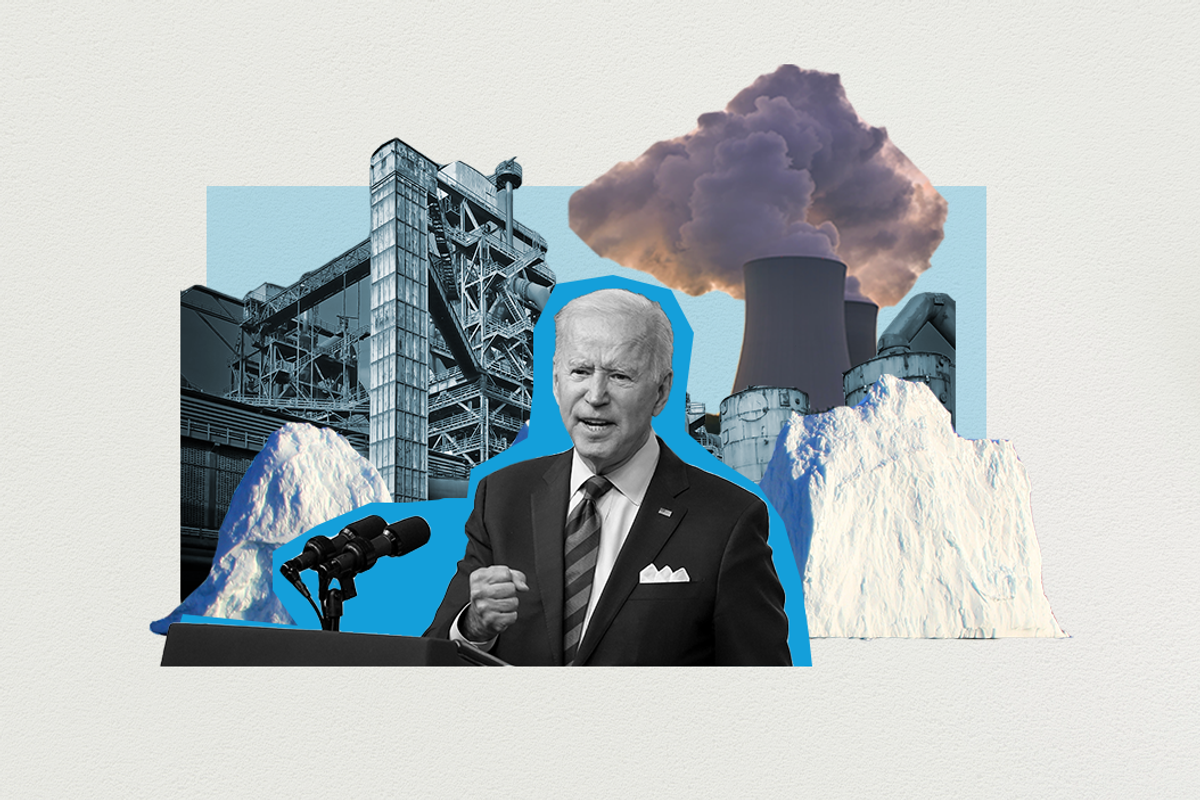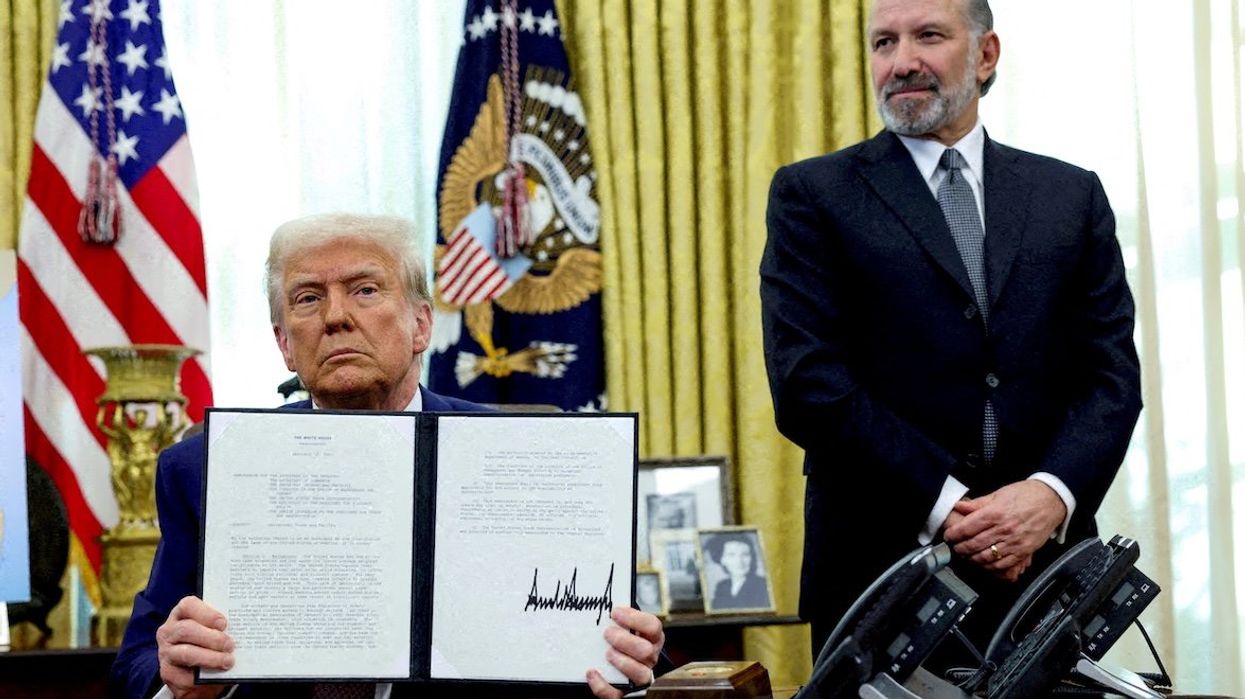The Biden administration's much ballyhooed Earth Day Summit this week promises to be revealing. We're going to learn a little about what additional action a few dozen of the world's largest emitters are willing to take on climate change, and a lot more about which countries are willing to take such action at the behest of the United States.
Call it a situational assessment of the status of American power just shy of Biden's 100th day in office.
We're also about to discover whether John Kerry has gotten out over his skis diplomatically. Kerry, Biden's special envoy on climate, has been busy lately. His consistent message that the 2020s must be the decisive "decade of action" is a welcome one, but it's being received with some annoyance by allies who were left to fill the vacuum when American leadership vaporized for the second half of the 2010s.
As part of a Canadian government that worked hard with allies to keep the US in the Paris Climate Accord under President Trump, I can tell you that diplomatic failure had real consequences, principally for the United States. The world moved on.
Most notably, China ran up the score on developing renewables and electric vehicles, while the European Union developed a mature carbon market and increasingly sophisticated policies to harness the power of financial markets to solve the climate crisis. Bets were hedged against American leadership everywhere.
Meanwhile, the impacts of climate change only intensified. Epic wildfires raged from the Arctic to Australia, and storms of biblical proportions in every season became irrefutable evidence for most of the world's population — especially its young people — that the Intergovernmental Panel on Climate Change (IPCC) models were right and the science is sound. Indeed, if climate scientists sound like alarmists these days, it's only because they're alarmed. They know that the most pernicious fact about greenhouse gas emissions is that they persist. That's true no matter the outcome of Biden's summit or the UN's COP summits — the 26th of which is set to take place in Glasgow this year. We have already baked into the atmosphere a dangerous amount of warming for the foreseeable future.
All of that means that the Biden administration is bringing America back to a very different climate discussion than the one it exited four years ago. The policy environment is less stable, more urgent and a lot more competitive. For one thing, we've gone from a world of wary multilateral cooperation to one of furious competition for dominance in the industries, technologies, and supply chains that will be at the heart of the global transition away from fossil-fuel dependence.
So, given all of this, what does the White House want out of the Earth Day Summit? Biden and — very personally — Kerry initially set a high bar for success at having the world's largest emitting countries show up with stronger commitments to reduce their emissions. In COP language, that means setting stronger Nationally Determined Commitments (NDCs) heading into Glasgow than were tabled for Paris. All of this sounds rather arcane to the uninitiated, but these national targets are the motor that drives the COP process, for better and worse.
At their best, targets are useful for directing complex systems toward meaningful ends, while providing clear benchmarks for accountability. At worst, they are the rhetorical equivalent of an inebriated promise to never touch another drop of alcohol. In fact, if you're really cynical, Net Zero targets set for mid-century are worse than that: they're promises that our children and grandchildren will never drink again, while we continue to empty the liquor cabinet.
In either case, the United States has had little luck in cajoling friends or competitors to arrive fully stocked for their Earth Day party. The world seems to be telling the Americans that they need to do a lot more walking and a lot less talking when it comes to climate change.
There are rumors at the time of this writing that the US will in fact unveil an ambitious new target, perhaps as much as a 50 percent reduction in emissions. There will be a gap between whatever number they choose and the policies they've planned to achieve it— most notably the lack of a broad-based carbon price in the US economy. If that gap is too wide, the target will strain credulity.
But what can we expect from other major economies that are set to attend the summit?
Large European states have been the most interesting to observe in the early days of the Biden administration. The post-Brexit UK needs friends more than it once did, so Biden can count on Boris, but the Germans and French have been cagier. Macron and Merkel's "meeting before the meeting" with Xi Jinping is a particularly spicy diplomatic move in this respect. Among other things, it should serve to remind the Americans that — for all the talk of reinvigorating the trans-Atlantic partnership — the most important climate dynamic is trans-Pacific.
Chinese and Indian emissions, particularly from coal, remain the single most lethal threat to the climate. Xi Jinping — a man not usually full of surprises — stunned most observers with his UNGA speech last fall, committing China to Net Zero by 2060 and to peak emissions this decade. He may have more aggressive action planned for the run-up to COP 26, but there is a 0 percent chance that he will allow the Americans the satisfaction of extracting it from him. He dropped in on Merkel and Macron to make sure the US got that message. Kerry's follow-up mission to China was tame compared to the diplomatic bunfight that took place between top US and Chinese diplomats in Alaska last month, but even the Americans described Kerry's success as "modest."
To his great credit, Kerry has spent a courageous amount of time and political capital on the problem of India's electricity sector, which has tripled its output from coal since the turn of the century. In fact, with Chinese coal use plateauing, it's not much of a stretch to say India's electricity grid will soon be the climate's public enemy number one. The traditional Indian argument that it is unfair for developed nations to impose restrictions on its development that they did not suffer themselves is surely fair. But as the great American physicist Robert Socolow has recently written, when it comes to the near-term future of the climate, "safe is not fair and fair is not safe." If John Kerry does nothing else as climate envoy other than find a way through the impasse where those arguments meet it will be time well spent.
Other nations whose emissions are of less importance will present a mixed bag on Earth Day. US-Russia relations are at a post-Cold War nadir, and nothing will happen this week to materially alter that. Canada and Japan might be the only two countries to show up with their assigned homework completed — more ambitious new targets — though I keep hearing noises that Brazil may surprise us as well.
Overall, Team Biden has done a good job of resetting expectations back from "every country must increase their ambition." There's more practical talk now about the US proving the depth of its own commitment to the climate with its NDC, and using the Summit as a productive kick off on the road to COP 26.
That's because their first 100 days of climate diplomacy has taught them what will be on full display for all of us on Earth Day. The climate policy arena has gotten more aggressive, urgent and competitive. The statements of those who attend will tell us less about where their countries stand, and a lot more about where each believes the United States sits in this new competition.
Gerald Butts is Vice Chairman at Eurasia Group, and former Principal Secretary to the Prime Minister of Canada.


















